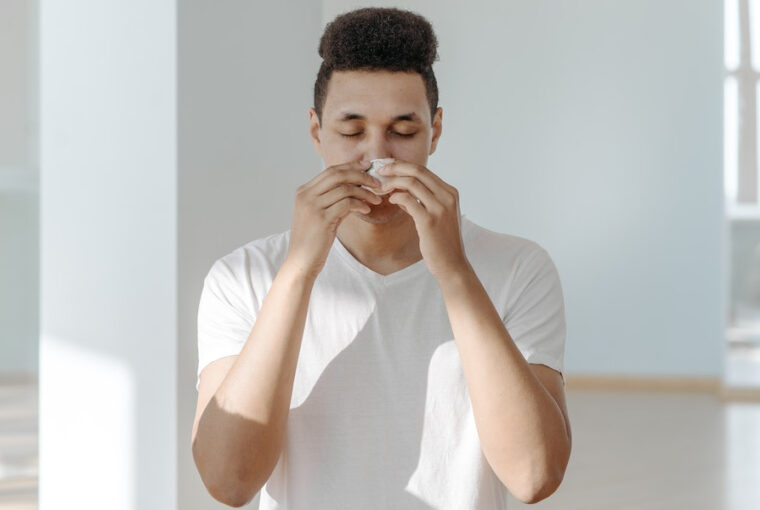In our quest to understand the intricacies of caloric expenditure, we often wonder about the energy we burn during everyday activities. One curiosity that arises is whether something as commonplace as coughing contributes to calorie burning. While coughing is primarily a reflex aimed at clearing our airways, it’s natural to wonder if it has any impact on our calorie count. In this article, we’ll explore the science behind this phenomenon, shed light on the calories burned during coughing, and examine whether it holds any significance in our broader understanding of weight management and overall health.
How Many Calories Does Coughing Burn?
Coughing typically burns a minimal amount of calories, around 2 to 5 calories per bout. The energy expenditure during coughing is relatively low compared to other activities. While it may contribute marginally to daily caloric expenditure, it should not be relied upon as a significant weight loss strategy. Maintaining a balanced diet and regular exercise remain crucial for managing one’s weight effectively.
Understanding Calories And Caloric Expenditure
Calories are the fundamental units of energy that our bodies require to function efficiently. We consume calories through the foods and beverages we intake, and our bodies utilize these calories to perform various tasks, from basic metabolic functions like breathing and digestion to more active pursuits like exercising and walking. Caloric expenditure refers to the number of calories our bodies burn in a day, and it plays a pivotal role in maintaining our weight and overall health.
Caloric expenditure is influenced by several factors, including age, gender, body composition, and activity level. Basal metabolic rate (BMR) represents the number of calories your body burns at rest just to maintain vital functions like temperature regulation and organ function. Physical activity accounts for a significant portion of caloric expenditure, with more active individuals burning more calories through exercise and daily movement. Additionally, the thermic effect of food (TEF) reflects the energy expended during digestion, as our bodies process and absorb nutrients from the foods we eat.
It’s important to recognize that caloric expenditure can vary greatly among individuals. Younger people tend to have higher metabolic rates, while men often have slightly higher calorie needs than women due to differences in muscle mass. Moreover, the more physically active you are, the more calories you burn, contributing to weight maintenance or loss. Understanding your own caloric needs is crucial for managing your weight and achieving your health and fitness goals.
Why Coughing Is Necessary For Clearing The Airway?
Coughing is a natural and essential reflex that serves the crucial purpose of clearing the airways in our respiratory system. Here’s why coughing is necessary for this vital function:
- Removal of Irritants: The air we breathe can contain various irritants, such as dust, pollen, smoke, or foreign particles. When these irritants enter our airways, they can trigger a protective response. Coughing helps expel these irritants from the respiratory tract, preventing them from reaching deeper into the lungs where they can cause harm or trigger infections.
- Mucus Clearance: The lining of our airways produces mucus to trap foreign particles and pathogens, including bacteria and viruses. Coughing plays a critical role in clearing excess mucus from the airways. By forcefully expelling mucus through coughing, the body removes potential threats and promotes a clear and unobstructed passage for air to flow in and out of the lungs.
- Preventing Infections: Coughing is a defense mechanism against respiratory infections. When harmful microorganisms like bacteria or viruses enter the respiratory system, the body’s response includes coughing to expel these invaders and reduce the risk of infection. Coughing can help minimize the presence of pathogens in the airways.
- Maintaining Oxygen Exchange: The efficient exchange of oxygen and carbon dioxide in the lungs relies on clear airways. Coughing ensures that air passages remain open and unobstructed, enabling the respiratory system to deliver oxygen to the bloodstream and remove waste gases, such as carbon dioxide.
- Response to Irritation: Coughing also responds to irritation caused by various factors, including allergies, pollutants, or changes in temperature and humidity. This reflexive action helps protect the delicate tissues of the respiratory tract from harm.
How To Alleviate And Manage Coughing Due To Illnesses?
Managing and alleviating coughing due to illnesses can help relieve discomfort and promote a faster recovery. Here are some strategies to consider:
Stay Hydrated: Drink plenty of fluids, such as water, herbal teas, and broths. Hydration helps keep the throat moist and can soothe coughing.
Use Humidifiers: Using a humidifier in your room can add moisture to the air, which can ease coughing, especially if the cough is caused by dry air or irritation.
Gargle with Salt Water: A warm saltwater gargle can help soothe a sore throat and reduce coughing. Mix a teaspoon of salt in a glass of warm water and gargle several times a day.
Cough Drops or Lozenges: Sucking on cough drops or throat lozenges can temporarily relieve throat irritation and reduce the urge to cough.
Honey and Lemon: A mixture of honey and lemon in warm water is a traditional remedy for coughs. Honey has soothing properties, while lemon provides vitamin C.
Over-the-counter Medications: Depending on the type of cough and its underlying cause, over-the-counter cough medicines may provide relief. There are two main types: expectorants (which help loosen mucus) and suppressants (which reduce the urge to cough). Consult a pharmacist or healthcare professional for guidance on which one to choose.
Rest: Give your body the rest it needs to recover. Adequate sleep and rest can help your immune system fight off the illness.
Elevate Your Head: If your cough worsens at night, try sleeping with your head elevated. This can reduce postnasal drip and minimize nighttime coughing.
Avoid Irritants: Stay away from smoke, strong odors, and other irritants that can worsen coughing.
Steam Inhalation: Inhaling steam from a bowl of hot water can help soothe irritated airways and reduce congestion. Be cautious to avoid burns.
Prescription Medications: If your cough is severe and persistent, a healthcare provider may prescribe medication to address the underlying cause, such as antibiotics for a bacterial infection or inhalers for asthma.
Seek Medical Attention: If your cough is accompanied by severe symptoms like high fever, difficulty breathing, and chest pain, or if it persists for an extended period, it’s important to consult a healthcare professional for a proper diagnosis and treatment plan.
Conclusion
In conclusion, effectively managing and alleviating coughing due to illnesses involves a combination of home remedies, rest, and, when necessary, medical intervention. It’s essential to stay hydrated, soothe the throat, and create a comfortable environment for recovery. While over-the-counter remedies and natural solutions can provide relief, it’s crucial to consult a healthcare professional if the cough persists, worsens, or is accompanied by severe symptoms. Remember that coughing serves a protective role in clearing the airways, and addressing its underlying cause is key to a faster and more comfortable recovery.
FAQ’s
Is It Better To Suppress A Cough Or Let It Run Its Course?
The answer depends on the type of cough. Dry, irritating coughs may benefit from cough suppressants, while productive coughs (with mucus) should not be suppressed, as they help clear the airways. Always consult a healthcare professional for guidance.
When Should I Seek Medical Attention For A Cough?
You should seek medical attention if your cough is severe, persists for more than a few weeks, is accompanied by high fever, difficulty breathing, chest pain, or if you have underlying health conditions like asthma or COPD.
Are Antibiotics Effective For Treating A Cough?
Antibiotics are only effective if the cough is caused by a bacterial infection. Most coughs, especially those associated with viral infections like the common cold, do not respond to antibiotics.
What Are The Best Home Remedies For Cough Relief?
Home remedies include staying hydrated, using humidifiers, drinking warm liquids, and throat-soothing remedies like honey and lemon. These can help alleviate coughing due to irritation and dryness.
Can I Prevent Coughing During Illness?
While you can’t always prevent a cough when you’re ill, you can reduce the risk by practicing good hand hygiene, avoiding close contact with sick individuals, and getting vaccinated against preventable illnesses like the flu. Additionally, maintaining overall good health through a balanced diet and regular exercise can support a robust immune system.




